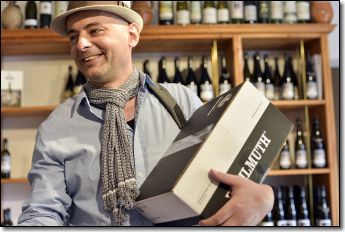
| Wine has long held a prominent place in human culture - not just as a drink, but as a symbol, a tradition, and a catalyst for social interaction. Its significance stretches across centuries and civilizations, intertwining with religion, celebration, status, and community. Like coffee or tea, wine often facilitates conversation. It creates a relaxed atmosphere, lowers social barriers, and encourages connection. Whether at a formal tasting or a casual evening with friends, wine can serve as a common ground for sharing stories, ideas, and laughter. Wine has certainly helped me forge friendships during my travels abroad.
|



























































































































